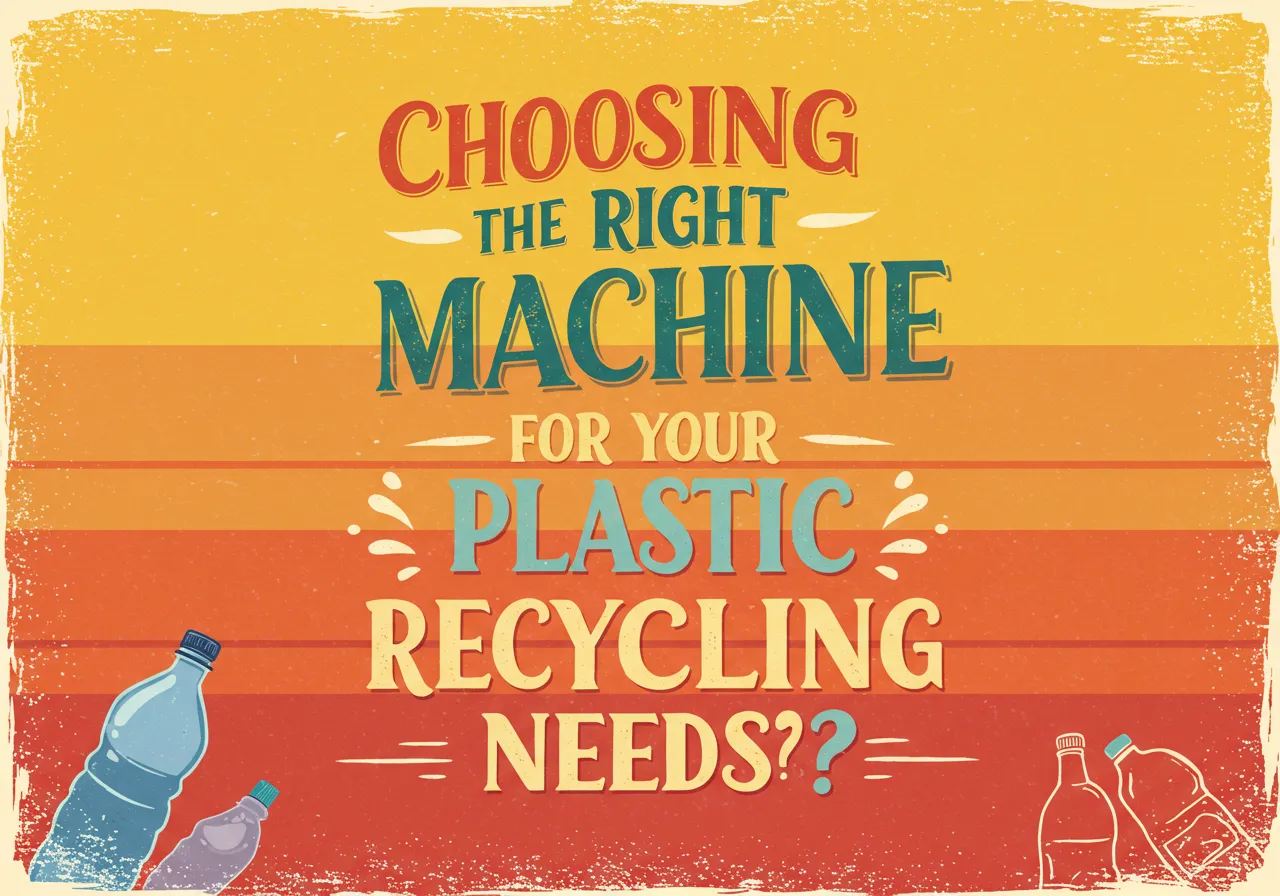Selecting the optimal plastic recycling machine is critical to maximizing efficiency, minimizing costs, and ensuring high-quality output. While both cutter-compactors و تمزيق الورق reduce plastic waste size, their designs and applications differ drastically. This guide breaks down key factors to help you decide which machine aligns with your operation’s needs.
1. Analyze Your Input Material: The Foundation of Choice
Before investing, evaluate the type, size, and condition of your plastic waste. These factors dictate whether a cutter-compactor or shredder is best suited.
A. Type of Plastic
- Flexible Plastics: Materials like low-density polyethylene (LDPE) films, high-density polyethylene (HDPE) bottles, and polypropylene (PP) bags require gentle processing to avoid degradation.
- البلاستيك الصلب: Thick items such as PVC pipes, ABS automotive parts, or post-industrial scrap need heavy-duty force to break down.
Pro Tip: The EPA notes PE and PP are among the most recycled plastics—but each demands tailored processing. For example, PP raffia (used in agriculture) is bulky and benefits from shredding, while LDPE films excel with cutter-compactors.
B. Size and Form
- Small/Flexible Items: Films, bags, or shredded fragments need uniform mixing for extrusion.
- Large/Bulky Items: Oversized containers, lumps, or irregular shapes require brute force to reduce size.
C. Contamination Levels
- Light Contaminants (dirt, labels): Cutter-compactors can handle moderate contamination via integrated washing.
- Heavy Contaminants (metal, rocks): Shredders’ robust designs better withstand debris, though pre-sorting is still recommended.
2. Cutter-Compactor: Ideal for Flexible, Consistent Processing
If your waste stream includes films, bags, or thin plastics, a cutter-compactor is likely your best bet. Its dual-action blade system cuts و mixes materials, creating a homogeneous feed for extrusion.
المزايا الرئيسية
- التجانس: The mixing action ensures uniform material consistency—critical for producing high-quality pellets (especially for printed/unprinted packaging).
- Integrated Workflow: Combines cutting, extrusion, and pelletizing in one unit, saving space and eliminating pre-processing steps.
- Gentle Handling: Minimizes polymer chain degradation, preserving the plastic’s mechanical properties (e.g., flexibility in PE films).
Real-World Applications
- Recycling grocery bags, agricultural films, or post-consumer LDPE/PP packaging.
- Facilities prioritizing space efficiency and energy savings.
3. التقطيع: Built for Heavy-Duty, Rigid Waste
ل thick, bulky, or hard plastics, a shredder’s powerful rotating blades and hydraulic ram deliver unmatched size reduction. It excels at breaking down large, irregular items.
المزايا الرئيسية
- Handling Capacity: Tears through rigid plastics (PVC, PS) and large items (containers, automotive parts) that cutter-compactors struggle with.
- Direct Feed to Extruder: Maintains a steady, high-volume flow—ideal for high-throughput operations.
- متانة: Designed to withstand abrasive or contaminated materials (with proper pre-sorting).
Real-World Applications
- Processing industrial scrap (e.g., injection molding runners), post-consumer rigid plastics (bottles, crates), or large-volume waste streams.
4. Operational Efficiency: Compare Costs and Logistics
Beyond material type, weigh energy use, footprint, and maintenance to align with your budget and facility constraints.
| عامل | القاطعة-الضاغطة | التقطيع |
|---|---|---|
| استهلاك الطاقة | Low (integrated system reduces pre-processing) | Higher (heavy-duty motors, but saves labor/time) |
| متطلبات المساحة | Compact (all-in-one design) | Larger (robust construction, but scalable) |
| صيانة | Simple (stationary blades, minimal moving parts) | Frequent (hydraulic systems, rotating blades) |
Example: A small recycling plant processing LDPE films would benefit from a cutter-compactor’s energy efficiency. A factory handling tons of PVC scrap daily might prioritize a shredder’s throughput despite higher maintenance.
5. Conclusion: Match Machine to Mission
- Choose a Cutter-Compactor If: You process flexible plastics (films, bags) and value streamlined workflows, energy savings, and pellet quality.
- Choose a Shredder If: You handle rigid/bulky waste (pipes, containers) and need high-volume, durable size reduction.
The right machine boosts efficiency, reduces waste, and enhances profitability. If unsure, consult a plastic recycling specialist—they’ll assess your waste stream and recommend a tailored solution.
FAQ: Clearing Common Doubts
Q1: هل يمكن للكسارة معالجة البلاستيك القابل للانحناء مثل الأفلام؟
A1: رغم أن ذلك ممكن، قد تتشابك الأفلام في الكسارة وتنتج شرائح غير متساوية. الكسارات المدمجة أفضل بكثير للبلاستيك القابل للانحناء.
Q2: أي الآلة أكثر تكلفة في التشغيل على المدى الطويل؟
A2: الكسارات المدمجة تتفوق في الطاقة والصيانة للنفايات القابلة للانحناء. الكسارات تبرر التكاليف ل المهام الكبيرة من خلال المتانة والقدرة على التدفق.
Q3: هل أحتاج إلى كلا الآلتين؟
A3: فقط إذا كان تدفق نفاياتك يشمل كلاهما البلاستيك القابل للانحناء والبلاستيك القاسي. العديد من المرافق تستخدم الكسارة للكسر الأولي وتستخدم الكسارة المدمجة للمعالجة النهائية.
Q4: كيف يمكنني اختبار أي آلة تعمل لعملي؟
A4: اطلب اختبار عينة من الشركات المصنعة! معظمها يقدم جولات تجريبية لعرض جودة المخرجات والكفاءة.
من خلال التركيز على خصائص مادةك الفريدة وأهدافك التشغيلية، ستختار آلة إعادة تدوير البلاستيك التي تدفع إلى النجاح. مستعد لتعزيز خط إعادة التدوير الخاص بك؟ اتصل بفريقنا للحصول على إرشادات خبير!



